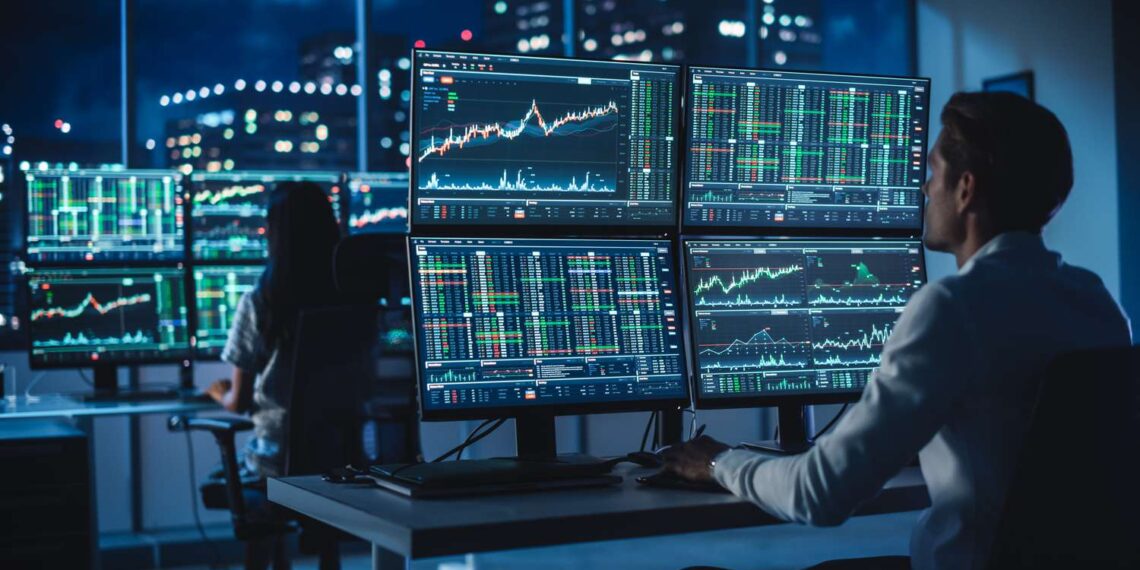Introduction: The Evolution of Trading
In the high-speed world of finance, trading stands as both an age-old practice and a modern craft. From ancient barter systems to today’s algorithmic strategies, the act of exchanging value has undergone a dramatic transformation. Yet, at its core, trading remains a discipline rooted in understanding value, managing risk, and interpreting market behavior. In today’s interconnected, digital-first economy, trading has become more accessible and, simultaneously, more complex than ever before. For individuals and institutions alike, mastering the intricacies of trading demands not only technical knowledge but also emotional intelligence and strategic thinking.
Understanding the Fundamentals of Trading
Trading refers to the act of buying and selling financial instruments with the intention of making a profit. These instruments can include stocks, bonds, currencies, commodities, derivatives, and cryptocurrencies. Unlike investing, which focuses on long-term value accumulation, trading emphasizes short-term price movements and opportunities.
There are several primary types of trading, each with its own strategy and time horizon:
-
Day Trading: Positions are opened and closed within the same trading day.
-
Swing Trading: Positions are held for several days to capitalize on short-term trends.
-
Position Trading: A longer-term approach, often based on fundamental analysis.
-
Scalping: Involves rapid trades to exploit minor price changes over seconds or minutes.
-
Algorithmic Trading: Uses computer programs to execute trades based on predetermined criteria.
The Tools and Platforms That Empower Traders
The democratization of trading has been largely fueled by technology. Online brokerage platforms, real-time data feeds, and mobile applications have placed powerful tools into the hands of everyday traders. Key resources include:
-
Trading Platforms (e.g., MetaTrader, Thinkorswim, TradingView): Offer charting tools, technical indicators, and order execution features.
-
Market News and Economic Calendars: Help traders stay ahead of influential events.
-
Technical Analysis Tools: Aid in identifying trends, resistance levels, and support zones.
-
Fundamental Analysis Resources: Used to evaluate a company or asset’s intrinsic value.
Risk Management: The Bedrock of Sustainable Trading
No discussion of trading would be complete without a deep emphasis on risk management. The financial markets are inherently volatile, and even the most well-researched trade can lead to losses. The most successful traders aren’t necessarily the ones with the most wins, but rather those who effectively control their losses.
Core principles of risk management include:
-
Stop-Loss Orders: Automatically close a trade when it hits a predefined loss level.
-
Risk-to-Reward Ratio: Ensures that the potential gain outweighs the possible loss.
-
Diversification: Reduces risk exposure by spreading investments across various instruments.
-
Position Sizing: Adjusts the amount invested per trade based on account size and risk appetite.
Psychological Resilience: Trading the Inner Market
Trading is as much a psychological battle as it is a technical one. Emotional discipline plays a crucial role in success. Greed can lead to overtrading; fear may cause missed opportunities; overconfidence might prompt reckless decisions.
To maintain mental clarity and balance, seasoned traders cultivate traits such as:
-
Patience: Waiting for the right setup is often more profitable than constant activity.
-
Discipline: Sticking to a trading plan, even in volatile conditions, is essential.
-
Adaptability: Markets evolve, and strategies must be refined continuously.
-
Emotional Detachment: Treating losses as part of the process rather than personal failure fosters resilience.
The Role of Strategy in Trading Success
Behind every successful trader is a well-tested strategy. This strategy often blends technical indicators, chart patterns, and market timing. Whether one prefers Fibonacci retracements, moving averages, or candlestick patterns, consistency and back-testing are vital.
Popular trading strategies include:
-
Trend Following: Buying during an uptrend and selling during a downtrend.
-
Breakout Trading: Entering trades when price breaks out of a defined range.
-
Mean Reversion: Capitalizing on assets returning to average price levels after extreme moves.
-
News-Based Trading: Making trades based on economic releases or geopolitical developments.
The Regulatory and Ethical Landscape
Trading doesn’t occur in a vacuum. It operates within a regulated environment designed to protect investors and ensure market integrity. Regulatory bodies like the U.S. Securities and Exchange Commission (SEC), Financial Conduct Authority (FCA) in the UK, and others globally enforce rules that govern trading behavior.
Traders must adhere to standards such as:
-
Insider Trading Prohibitions: Avoid trading on non-public, material information.
-
Fair Market Practices: Refrain from manipulative tactics like spoofing or wash trading.
-
Transparency and Disclosure: Uphold ethical standards and disclose conflicts of interest when required.
The Future of Trading: Trends and Innovations
Trading is evolving in tandem with advancements in technology and data science. Artificial intelligence, machine learning, and blockchain are reshaping how markets function and how traders approach them.
Emerging trends include:
-
Robo-Trading: AI-powered bots that analyze data and execute trades without human intervention.
-
Social Trading: Platforms where traders can follow and replicate strategies of seasoned investors.
-
Decentralized Exchanges (DEXs): Enabling peer-to-peer crypto trading with minimal intermediaries.
-
ESG Trading: Ethical investing strategies based on environmental, social, and governance metrics are gaining traction.
Conclusion: Trading as a Craft and Commitment
At its finest, trading is a dynamic intersection of analysis, psychology, risk control, and intuition. It offers the tantalizing prospect of financial independence but requires dedication, education, and humility. Far from the get-rich-quick schemes advertised by some, real trading is a journey of learning, discipline, and continuous refinement.

















